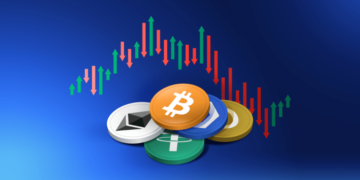The Nigerian government’s quick action to block some international forex platforms has sent shockwaves through the trading community, leaving many to question the motives behind such measures and their long-term impact on the financial landscape. According to news headlines from Nigerian news sites Premium Times, the Government has placed a ban on forex exchanges using cryptocurrency exchange platforms like Binance, OctaFX, Coinbase, amongst others.
This decision by the Nigerian government has not gone down well with users of these financial and crypto markets. This move, primarily aimed at stabilising the country’s foreign exchange (forex) market, has significant implications for both investors and the exchanges themselves. The forex crisis, exacerbated by dwindling oil revenues and the economic fallout from global events, has led to a scarcity of foreign currency, prompting the government to take drastic measures to protect the naira.
For cryptocurrency exchanges, the impact of these restrictions is multifaceted. Firstly, there is an immediate disruption in trading activities for Nigerian users, many of whom rely on these platforms for accessing global financial markets. Secondly, the restrictions pose a challenge to the liquidity of cryptocurrencies in the Nigerian market, potentially leading to increased volatility. The consequences of this decision can be outlined as follows:
- Reduced access to global markets for Nigerian investors, limiting their ability to diversify their portfolios.
- Increased pressure on local cryptocurrency markets, potentially leading to higher transaction costs and reduced liquidity.
- Acceleration of the adoption of peer-to-peer (P2P) trading platforms as an alternative, which may operate outside the regulatory oversight, increasing risks for users.
The broader economic implications of this policy are yet to be fully realised.
However, it is clear that the Nigerian government’s efforts to control the forex crisis by targeting cryptocurrency exchanges could have unintended consequences. These include potentially undermining the country’s position in the global digital economy and restricting financial inclusion efforts that benefit from the accessibility and efficiency of cryptocurrency transactions. As the situation evolves, it will be crucial for policymaker as to balance the immediate needs of forex stability with the long-term benefits of fostering an open and innovative financial ecosystem.
























